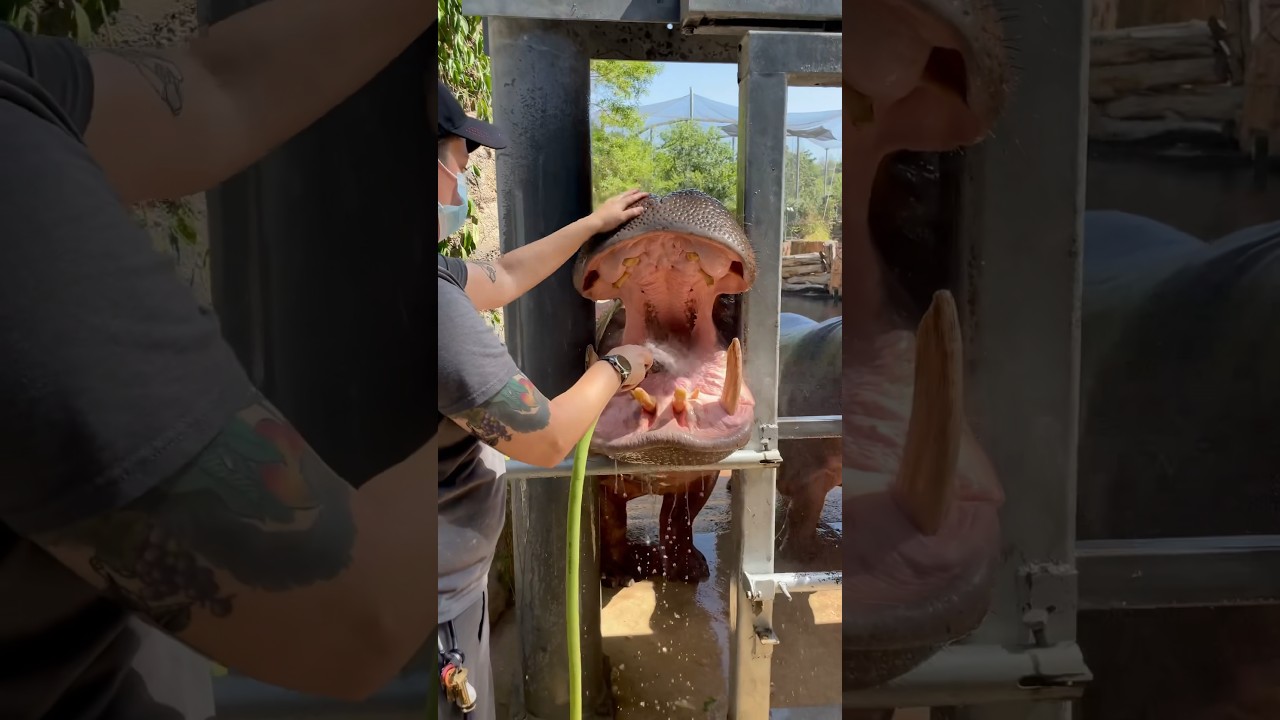– The critical role of hygiene in maintaining hippo health and wellbeing
– How zoo management contributes to the cleanliness and care of hippos
– The significance of wildlife conservation efforts in protecting hippos in their natural habitats
– Practical steps taken by zookeepers to promote good hippo hygiene
The importance of good hippo hygiene cannot be understated. This essential aspect of animal care has far-reaching implications for these majestic creatures’ health, well-being, and longevity, whether in captivity or the wild. Hygiene practices are central to preventing disease, ensuring the comfort of the animals, and facilitating enriched environments that mimic their natural habitats as closely as possible.
In zoo settings, managing the cleanliness and care of hippos requires a comprehensive understanding of their natural behaviors, dietary needs, and social structures. Hippos spend a significant amount of time submerged in water, which, in the wild, helps regulate their body temperature and keeps their skin moist. To replicate these conditions, zoo management teams invest heavily in creating large, clean water pools that are filtered and treated regularly to prevent the build-up of bacteria and other harmful pathogens. Such efforts are pivotal in thwarting the onset of skin ailments and infections, which could otherwise spread rapidly among these social animals.
Meanwhile, the significance of wildlife conservation cannot be overshadowed when discussing hippo hygiene. In their natural river and lake habitats, hippos play a crucial role in the ecosystem by facilitating the cycling of nutrients. However, their numbers are dwindling due to habitat loss, poaching, and pollution. Conservation efforts aim to address these threats by protecting hippo populations and preserving the cleanliness and integrity of their natural habitats. These initiatives help to ensure that hippos have access to clean water, which is fundamental to their hygiene and overall health.
Practical steps zookeepers take to promote good hippo hygiene include regular cleaning of enclosures, monitoring water quality, and providing hippos with opportunities to engage in their natural behaviors. This includes the manual brushing of their massive teeth, a task that helps prevent dental diseases and contributes to the overall health of the animals. Nutrition also plays a critical role in hippo hygiene. A well-balanced diet ensures that hippos maintain a healthy weight, reducing their risk of health issues and strengthening their immune systems.
Zoo management teams also engage in public education, highlighting the importance of conservation and good hygiene’s role in the health of hippo populations. These educational programs aim to raise awareness about hippos’ challenges in the wild and the efforts being taken to protect them. By fostering a deeper understanding of hippo health and hygiene, zoos hope to inspire a greater commitment to wildlife conservation among the general public.
The importance of good hippo hygiene reflects a broader understanding of animal care that encompasses health, behavior, and environmental stewardship. Through dedicated zoo management, conservation efforts, and public education, the goal is to create a sustainable future for hippos, both in captivity and the wild. These efforts underscore the interconnectedness of hygiene, health, and habitat preservation in ensuring the survival and well-being of these incredible animals.
*****
Source Description


